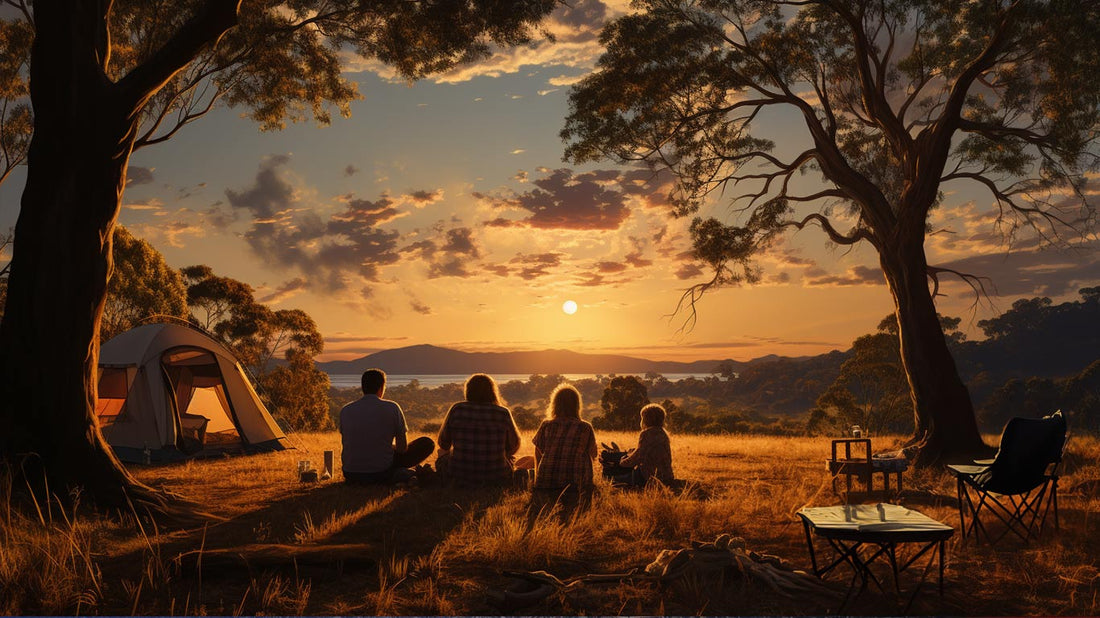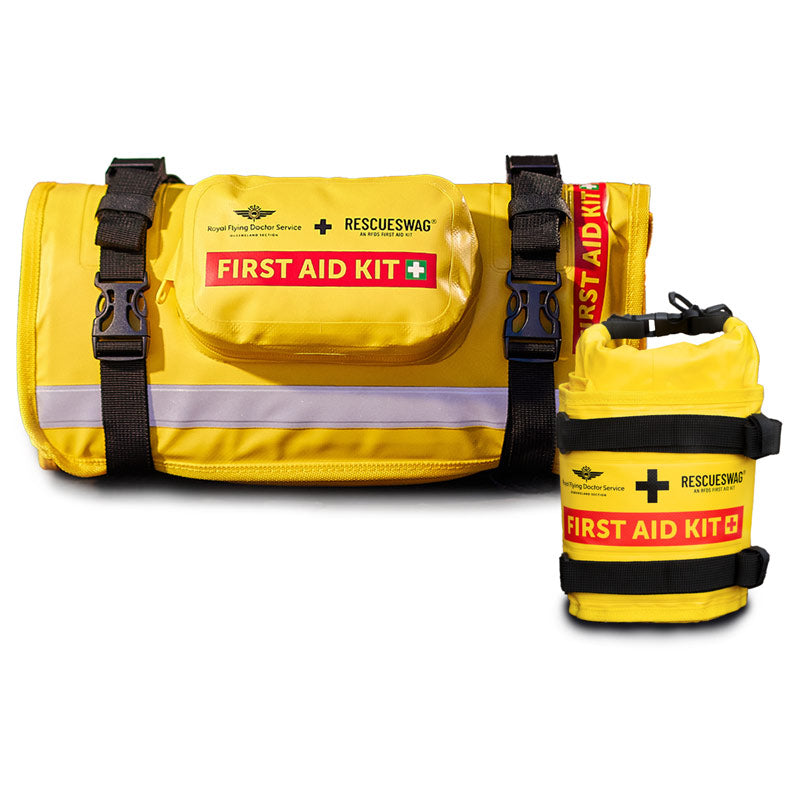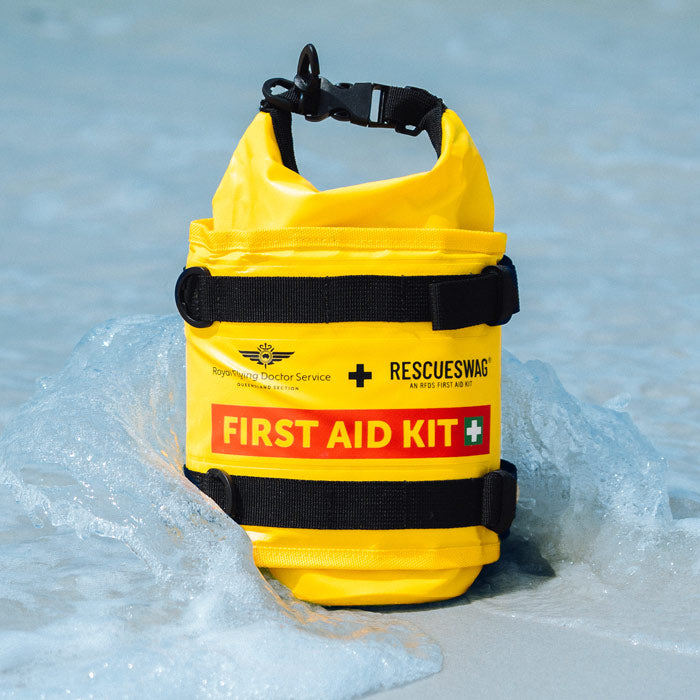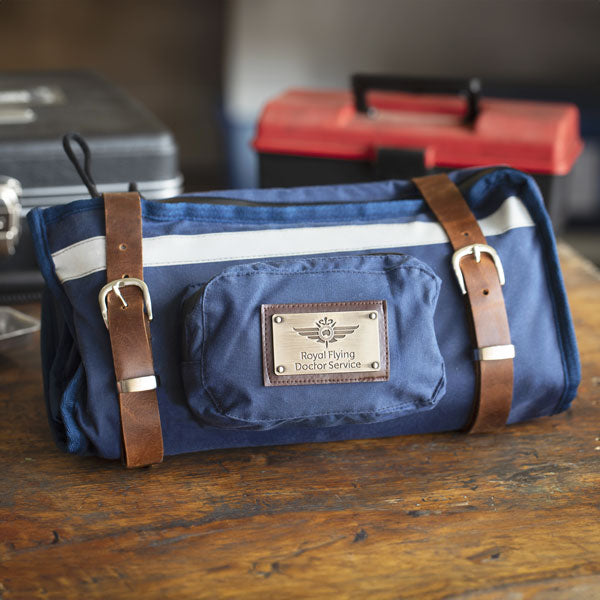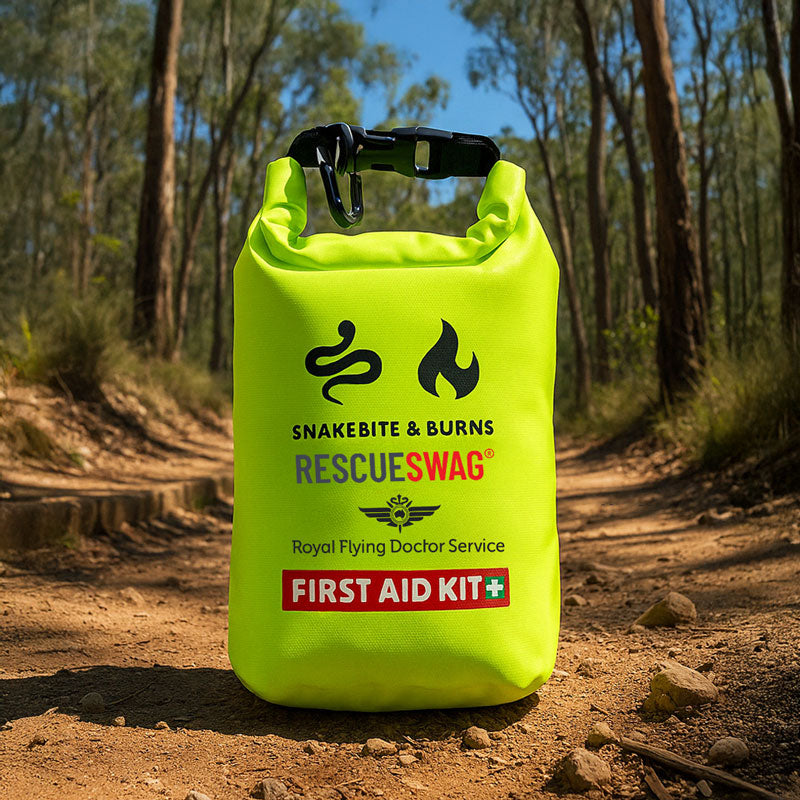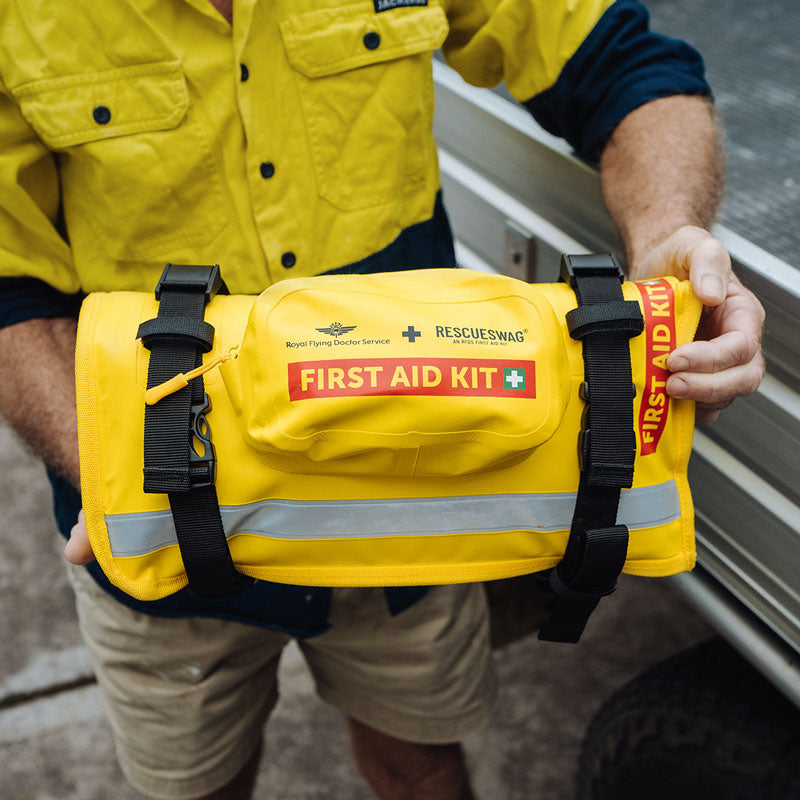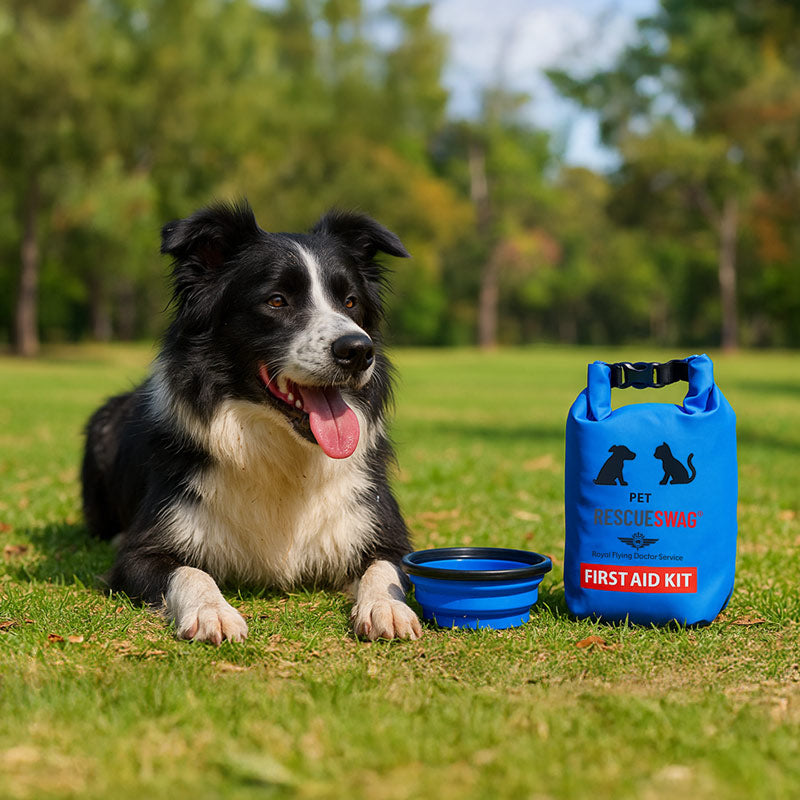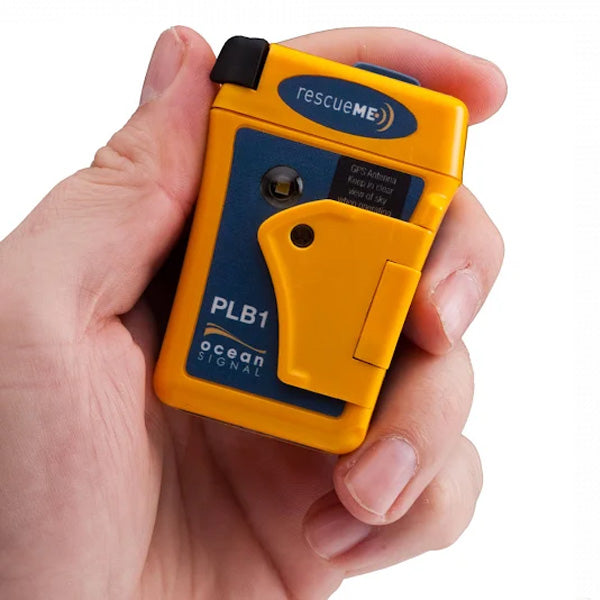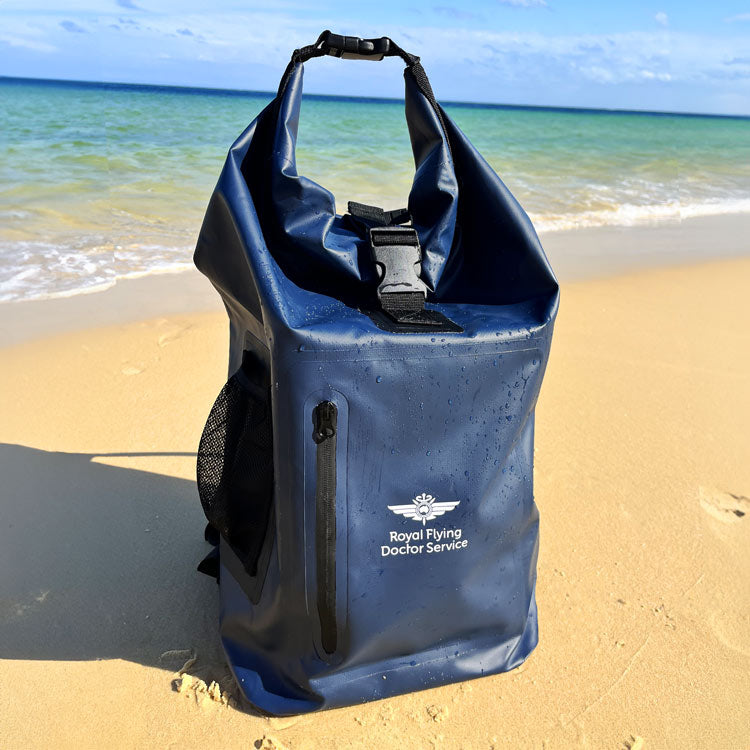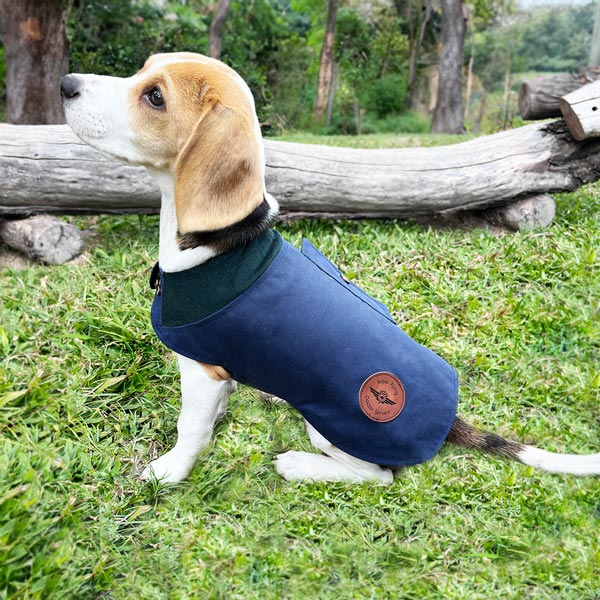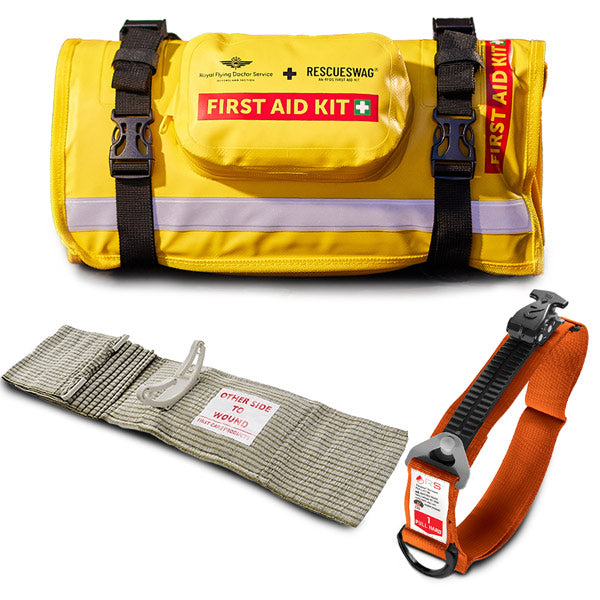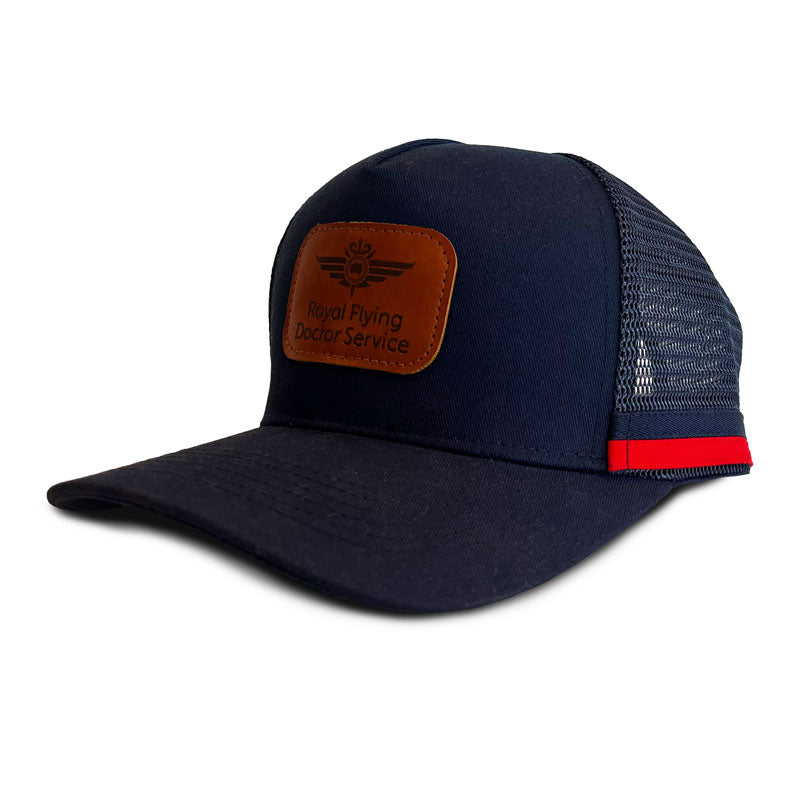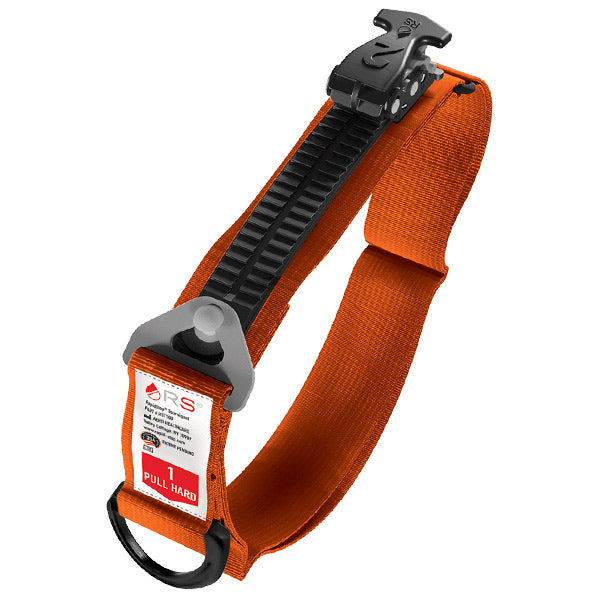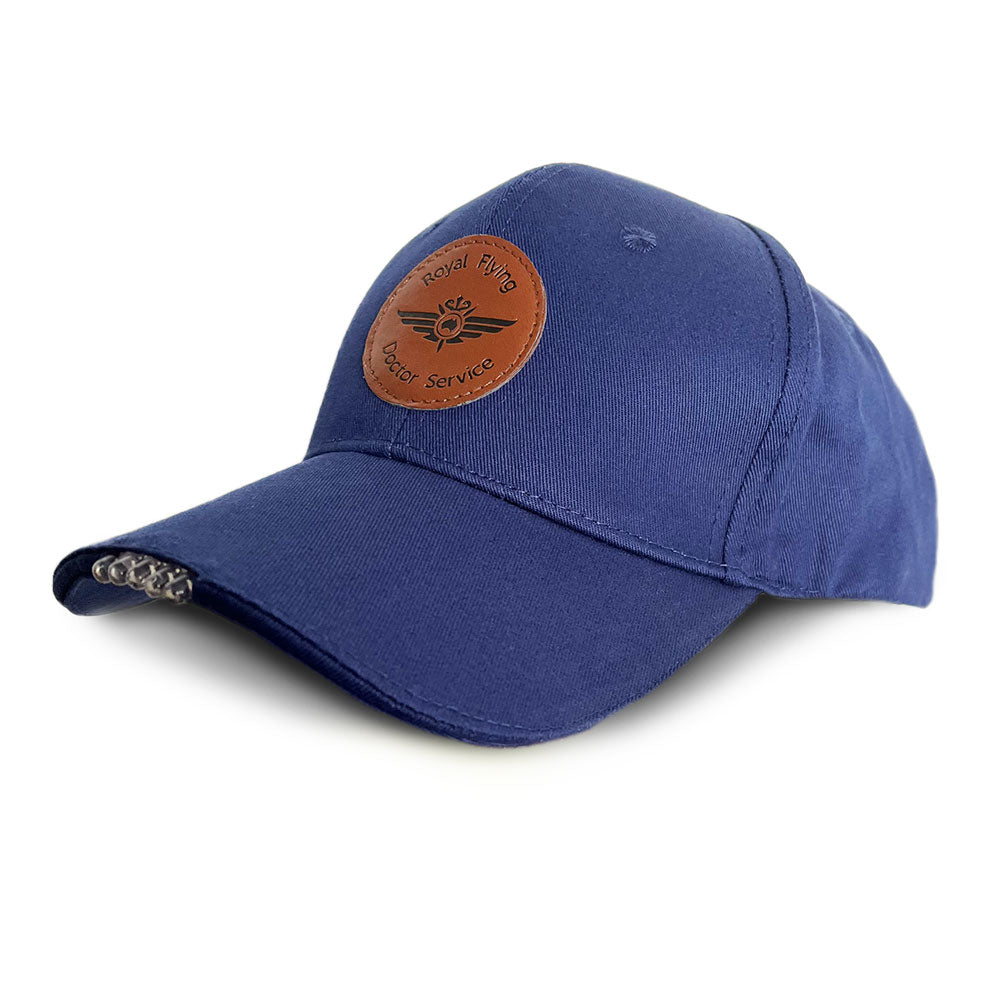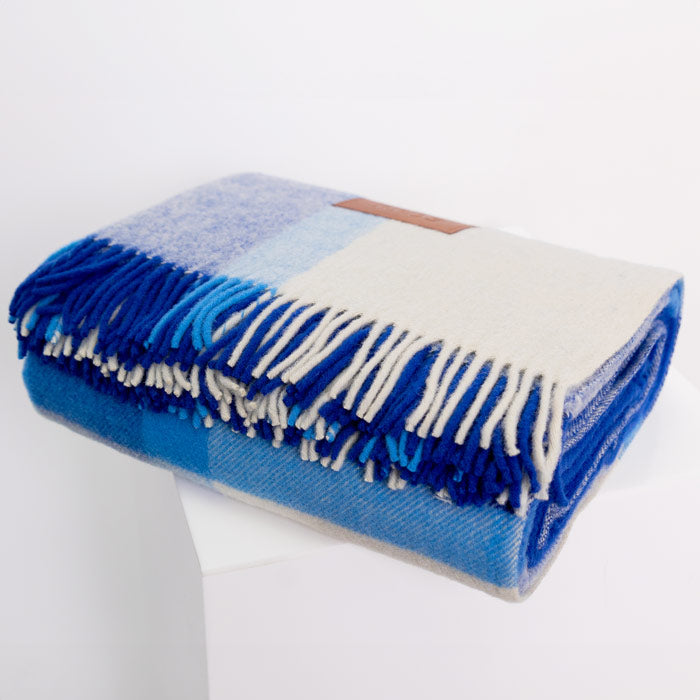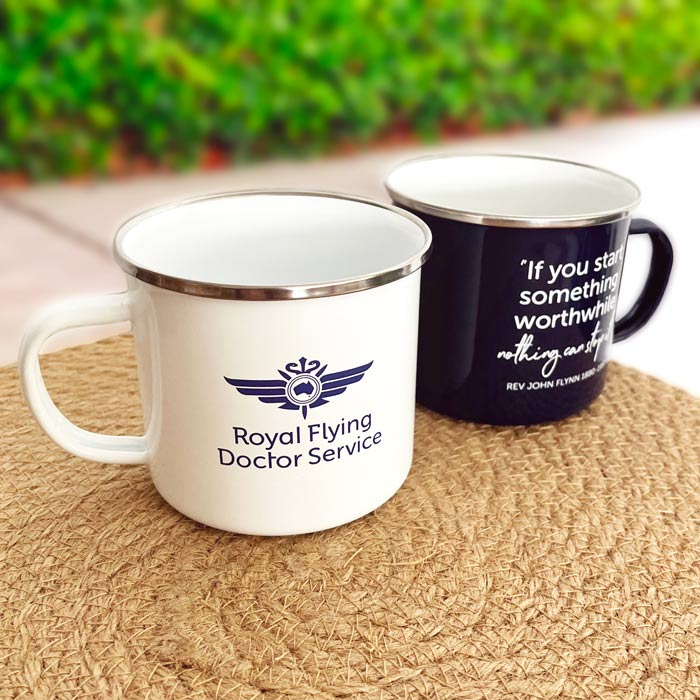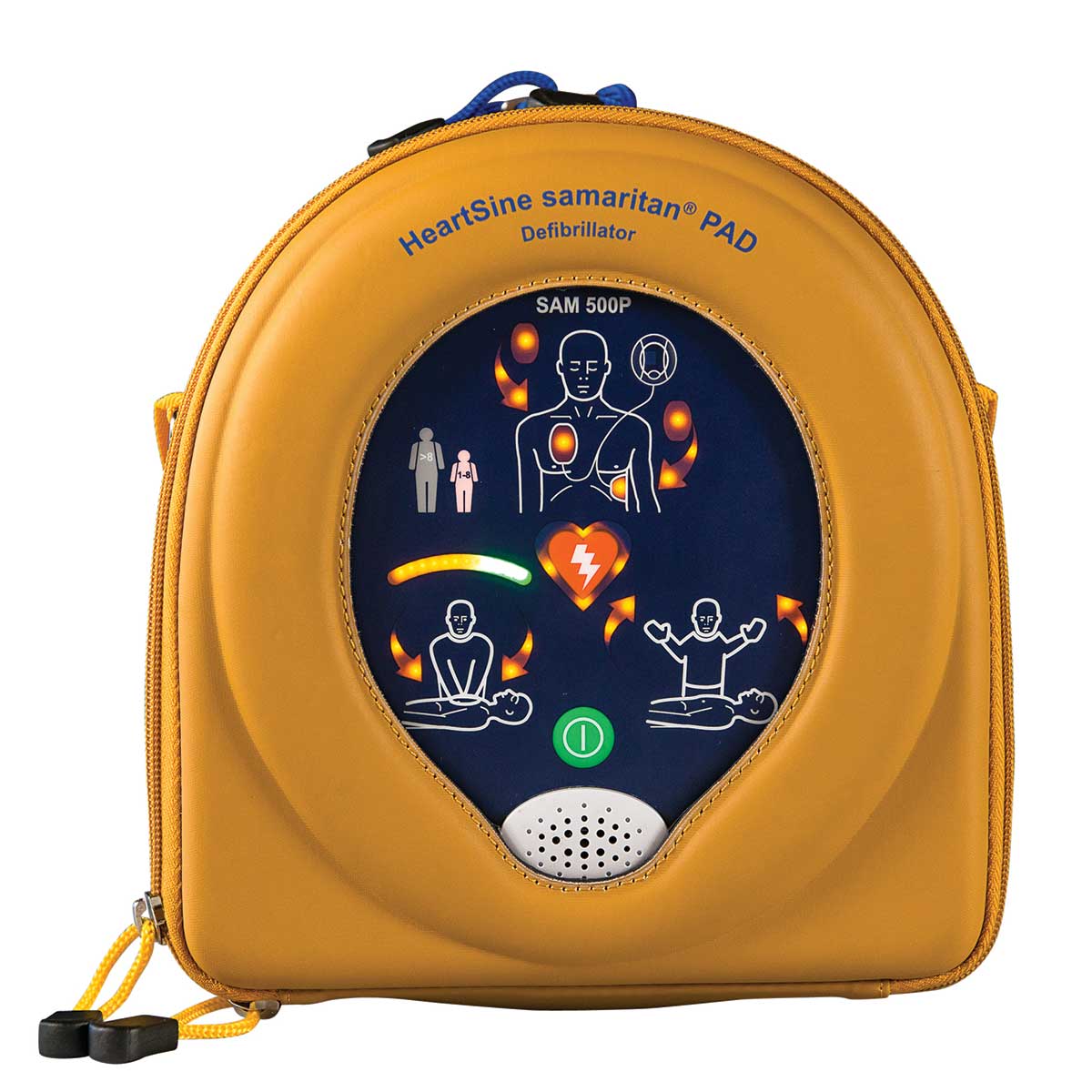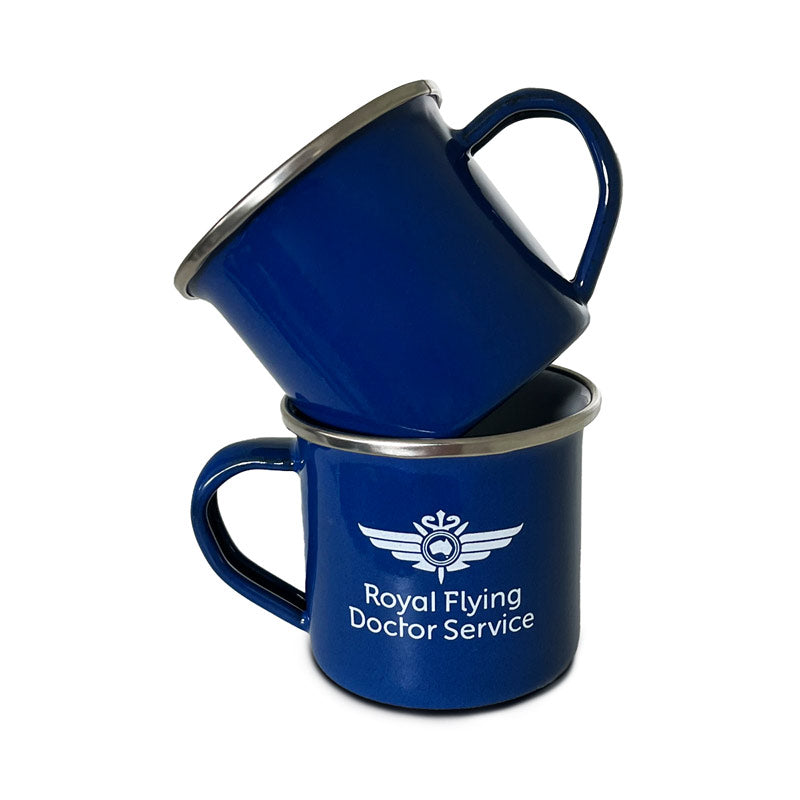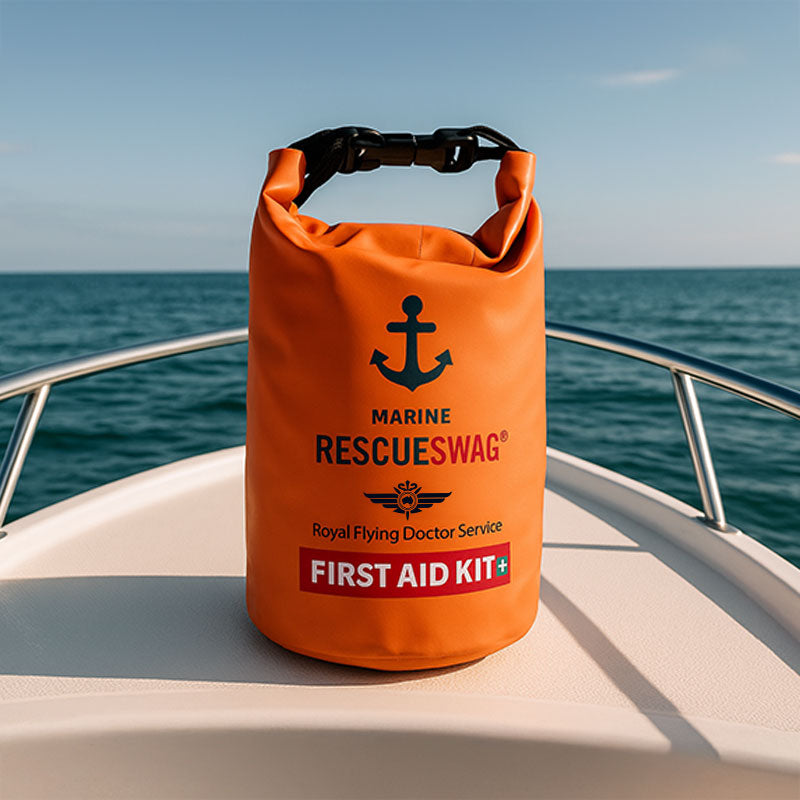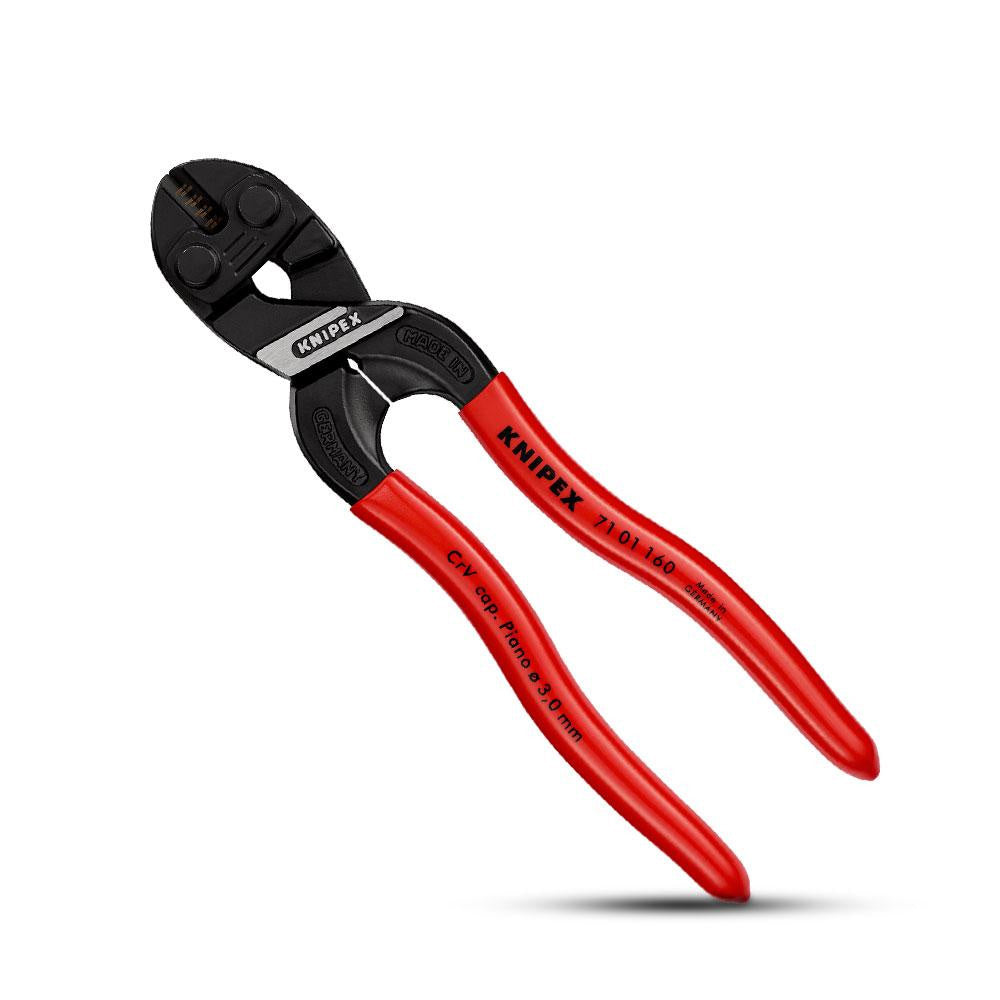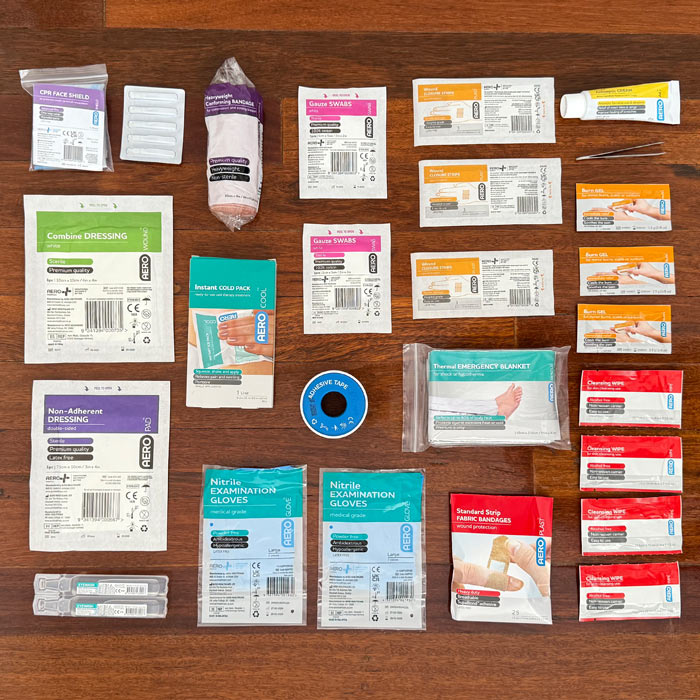Planning a camping trip with kids can be as exciting as it is daunting, especially if it's the first family foray into the outdoors. As parents and caregivers, we all want to share the joys of connecting with nature, from toasting marshmallows around the campfire to witnessing the vibrant Australian sunsets. But ensuring safety, comfort, and entertainment for our little adventurers can often feel like a daunting task.
That's where Rescue Swag steps in, making your family camping experience not just memorable, but also secure. Born out of a desire for comprehensive safety response in the wild, Rescue Swag has become Australia's toughest
Whether you're just thinking of taking your kids camping for the first time or you're a seasoned family of campers planning your next adventure, Rescue Swag is your reliable partner. With all proceeds of your purchase supporting the Royal Flying Doctor Service (Queensland Section), you can rest easy knowing that you're supporting those in regional, rural, and remote communities throughout Queensland.
Our goal in this guide is to make camping with children less daunting and more fun. We'll cover tips for camping with kids, essentials to bring along, and how to choose your family camping style. Let's dive into the adventure and start planning your next (or first) family camping trip with confidence and excitement. Ready? Let's go!
Benefits of Camping with Kids
Camping with children offers a plethora of benefits that extend beyond mere outdoor recreation. It allows families to bond, explore nature, and create cherished memories. Here are some of the key advantages of booking a family-friendly camping excursion:
Family Bonding: Camping trips bring families closer together as they share quality time away from the distractions of everyday life. Whether it's setting up a tent together, gathering around a campfire, or embarking on nature walks, these experiences foster strong familial connections and create lasting bonds.
Outdoor Exploration: Camping introduces children to the wonders of the natural world. They get to experience the sights, sounds, and sensations of the outdoors, sparking their curiosity and love for nature. Exploring forests, hiking trails, and swimming in pristine lakes or rivers offers an immersive learning experience that cannot be replicated elsewhere.
Skill Development: Camping encourages children to develop a range of skills. From pitching tents and building campfires to cooking meals and navigating trails, they learn valuable life skills and gain self-confidence. Camping also fosters resilience and adaptability as children navigate new environments and face various challenges.
Unplugged Adventure: In an era dominated by screens and digital devices, camping provides a welcome respite from technology. It allows kids to disconnect from virtual distractions and engage in imaginative play, social interactions, and hands-on activities. It offers an opportunity to appreciate the beauty of the natural world and fosters a deeper connection with the environment.
Environmental Awareness: Camping instills a sense of environmental responsibility in children. They learn about conservation, the importance of preserving natural resources, and the impact of their actions on the ecosystem. It helps cultivate a lifelong appreciation for the environment and encourages sustainable practices.
By embarking on camping adventures with your kids, you not only create lasting memories but also nurture their physical, emotional, and cognitive development. It's an investment in their well-being and a gateway to a world of exploration and discovery. So, pack up your gear, embrace the beauty of the Australian outdoors, and embark on unforgettable camping trips with your little ones.

Choosing the Right Age and Preparation
One of the common questions that arise when considering a family camping trip is, "What is the best age to start?" The truth is, there is no one-size-fits-all answer to this question. The right age to introduce your kids to camping largely depends on their individual maturity level, temperament, and familiarity with the outdoors. However, there are some general guidelines to consider:
-
Start Early: Many families begin camping with their kids as young as toddlers. While infants may be more challenging to camp with, children aged three and above tend to be more adaptable and excited about outdoor adventures.
-
Consider Temperament: Assess your child's temperament and comfort level with new experiences. Some children may naturally enjoy the outdoors and embrace camping, while others may be more cautious or need more time to acclimate.
Essential Camping Gear and Supplies
Tents and Sleeping Gear
- Invest in a family-sized tent that provides enough space for everyone to sleep comfortably. Consider tents with separate rooms for added privacy.
- Bring along cozy sleeping bags suitable for the weather conditions. For younger kids, consider sleeping bags specifically designed for children.
Cooking Equipment and Food
- Portable camping stoves or grills are essential for preparing meals at the campsite. Opt for easy-to-use models suitable for family cooking.
- Pack a variety of camping-friendly foods that are easy to prepare, such as instant noodles, canned goods, and pre-made snacks. Don't forget to include kid-friendly favorites.
Camping Essentials
- Folding chairs or portable camping chairs are great for relaxing around the campsite and enjoying meals together.
- A sturdy camping table provides a designated space for meals and activities.
- Lanterns, flashlights, or headlamps are necessary for navigating the campsite at night and for bedtime reading.
- A roll or two of toilet paper is also a must-have item for your camping checklist.
- Include a comprehensive
first aid kit , such as the Snake and Spider Bite Kit and the Adventurer Rescue Swag from Rescue Swag, to address medical emergencies effectively. - Pack insect repellent, sunscreen, and personal hygiene items to protect your family from outdoor elements.
Clothing and Weather Protection
- Dress in layers to be prepared for changing weather conditions. Pack clothes suitable for both warm days and cool nights.
- Bring raincoats, umbrellas, or waterproof clothing to stay dry in case of rain.
Entertainment and Activities
- Keep the kids entertained by packing a selection of games, toys, and books to keep kids entertained during downtime at the campsite.
- Bring along sporting equipment, such as balls or frisbees, for outdoor play and physical activities.
Eco-Friendly Supplies
- Use reusable water bottles, plates, cups, and utensils to reduce waste and minimize your environmental impact.
- Follow "Leave No Trace" principles by properly disposing of trash and recycling items.
By having the right gear and supplies, you'll create a comfortable and enjoyable environment for your family's outdoor adventure. Additionally, with Rescue Swag's

Tips for Camping with Children
1. Plan and Practice Beforehand:
- Set up a trial camping night in your backyard or even in your living room. This "practice" camping experience allows your kids to get used to sleeping in a tent and can help alleviate any fears they may have about sleeping outdoors.
- During the trial camping night, engage in camping-related activities to create a fun and immersive experience. After all, don't all kids love marshmallows!?
- Use this opportunity to teach your kids essential camping skills, such as how to set up a tent, use a camping stove, and build a fire (if permitted).
2. Create a Camping Packing List:
- Develop a comprehensive camping packing list well ahead of your trip. Divide the list into categories, such as shelter, cooking, clothing, personal items, and entertainment.
- Double-check the list to ensure you have all the necessary gear, including tents, sleeping bags, camping chairs, and cooking utensils.
- Involve your kids in creating the packing list, allowing them to suggest items they would like to bring and helping them understand the importance of being prepared.
3. Pack Smart and Light:
- Prioritize essential items, such as first aid supplies, extra layers of clothing, and food, while leaving behind non-essential items that could weigh you down.
- Consider using multi-purpose items to save space and weight. For example, a multi-tool can serve various purposes, and a camping stove that also functions as a grill can be more efficient than separate devices.
- Opt for lightweight and compact versions of camping gear to make transportation and setup easier.
4. Involve Kids in Meal Planning:
- Make meal planning a family affair by involving your kids in choosing and preparing camping meals. Let them pick their favorite snacks, fruits, and treats.
- Pack a variety of food options to cater to different tastes and dietary needs. Have some fun with cooking, making foil packet meals or cooking pizza over the fire.
- Teach your kids basic food safety practices, such as washing hands before eating and storing perishables in coolers with ice.
5. Be Mindful of Campground Quiet Hours:
- Respect the peace and quiet of other campers by adhering to the designated quiet hours. This ensures that everyone can enjoy a good night's sleep without disturbances.
- Encourage your kids to engage in quieter activities during these hours, such as reading, drawing, or stargazing.
6. Embrace the Outdoors:
- Encourage your kids to explore and interact with nature. Allow them to collect leaves, rocks, and other natural treasures to create nature art or keep as souvenirs.
- Organize nature scavenger hunts or "I Spy" games to encourage observation and appreciation of the environment.
- Engage in nature-inspired activities, such as birdwatching, identifying plants and wildlife, and learning about the local ecosystem.
7. Dress in Layers:
- Dressing in layers allows your kids to adjust their clothing according to the weather. Start with a moisture-wicking base layer, add insulating layers for warmth, and top it off with a waterproof and windproof outer layer.
- Opt for clothing made from quick-drying materials, which will be useful if it rains or if your kids get wet during outdoor activities.
- Don't forget to pack extra socks and underwear, as well as hats and sunglasses to protect from the sun.
8. Emphasize Leave No Trace:
- Teach your kids the principles of "Leave No Trace" camping, which include disposing of waste properly, respecting wildlife and vegetation, and leaving the natural environment undisturbed.
- Bring garbage bags to collect and properly dispose of trash, and encourage your kids to help clean up the campsite before leaving.
- Minimize your impact on the environment by using biodegradable soaps and avoiding single-use plastics.
9. Stay Safe at Night:
- Illuminate the campsite with glow sticks or battery-operated LED lights to make it easier for kids to find their way in the dark.
- Establish a designated path from the tent to the bathroom or other common areas to prevent tripping and stumbling once it gets dark.
- Educate your kids about the nocturnal animals they might encounter and explain that most wildlife is harmless when left alone.
10. Monitor Screen Time:
- Encourage your kids to unplug from electronic devices during the camping trip to fully immerse themselves in the outdoor experience.
- Instead of screen time, engage in interactive activities like storytelling, board games, and nature crafts to foster family bonding and creativity.
11. Have Fun Rainy Day Activities:
- Be prepared for rainy days with indoor activities to keep kids entertained. Bring along a deck of cards, board games, or activity books to enjoy inside the tent or sheltered areas.
- Utilize the opportunity to teach your kids about rain's importance in nature and how it contributes to the overall camping experience.
12. Capture the Moments:
- Bring a camera or smartphone to capture the special moments and memories during the camping adventure.
- Encourage your kids to take photos and create a camping trip journal or scrapbook to document their experiences and observations.
Remember that flexibility and adaptability are essential when camping with kids. Embrace the unexpected and enjoy the simple joys of being together in nature. By following these camping tips, you'll create lasting memories and foster a love for the great outdoors in your kids. So, get ready to embark on a memorable camping journey that your family will treasure for years to come!

Safety Measures and First Aid
Ensuring the safety of your kids during a camping trip is paramount. Campsites can present various challenges, but with the right safety measures and first aid preparedness, you can mitigate potential risks. Here are essential safety guidelines and tips for a safe camping experience with your children:
Campsite Safety
- Choose a flat and clear camping spot to set up your tent to avoid potential hazards.
- Keep the site or holiday park clean and free from debris, minimizing the risk of trips and falls.
- Set clear boundaries for your kids and educate them about potential dangers in the camping area, such as cliffs or bodies of water.
Campfire Safety
- If campfires are allowed, ensure they are set up in designated fire rings or fire pits.
- Always supervise children around the campfire and establish rules for safe fire behavior, such as no running or playing near the flames.
- Extinguish the fire completely before leaving or going to sleep.
Sun Protection
- Apply sunscreen with a high SPF regularly to protect your kids from harmful UV rays.
- Dress your children in lightweight, long-sleeved clothing and wide-brimmed hats to shield them from direct sunlight.
- Seek shade during peak sun hours, typically from late morning to mid-afternoon.
Water Safety
- If camping near bodies of water, ensure children are supervised at all times and have life jackets available for water activities.
- Teach your kids about water safety rules, such as never swimming alone and staying away from strong currents.
Wildlife Awareness
- Educate your children about the local wildlife and how to interact with animals safely.
- Store food securely to prevent attracting wildlife, reducing the risk of animal encounters.
First Aid Preparedness
- Include a well-stocked
first aid kit in your packing list, such as the Snake and Spider Bite Kit and the Adventurer Rescue Swag from Rescue Swag. These kits are designed to handle medical emergencies effectively. - Familiarize yourself with the contents of the
first aid kit and how to use them. - Have a basic knowledge of first aid techniques, such as treating minor cuts, burns, and insect bites.
Emergency Contacts
- Carry a list of emergency contacts, including local emergency services and the nearest medical facilities.
- Ensure that your mobile phones are fully charged and have access to communication in case of emergencies.
By prioritizing safety and being prepared with first aid equipment, you can create a secure environment for your kids to enjoy their first camping trip. Remember, proactive safety measures and Rescue Swag's reliable
Campsite Activities and Fun
Once you have all the essential camping gear and supplies, it's time to plan an array of exciting activities that will keep your kids engaged and entertained throughout the trip. The great outdoors offers a multitude of opportunities for fun and learning. Here are some camping activities that your kids will love:
1. Nature Exploration:
- Take nature walks or hikes to explore the beauty of the surrounding environment. Encourage your kids to observe plants, insects, and wildlife, and teach them about the wonders of nature.
2. Campfire Adventures:
- Gather around the fire in the evening for storytelling, singing songs, and roasting marshmallows to make delicious s'mores.
3. Scavenger Hunt:
- Take the kids on a scavenger hunt to spark thier curiosity and sense of adventure. Create a list of items they can find on the site or on nearby nature trails.
4. Stargazing:
- After the sun sets, lie back and marvel at the breathtaking night sky. Use a stargazing app or book to identify constellations and planets.
5. Nature Art and Crafts:
- Collect natural materials like leaves, rocks, and pinecones, and use them for nature-themed arts and crafts activities.
6. Outdoor Games:
- Pack sports equipment such as balls, frisbees, or kites for some active outdoor play. Classic games like tag or hide-and-seek can also be adapted for the camping ground.
7. Storytime and Books:
- Bring along favorite books or camp-themed stories to read aloud as a family, creating cozy moments inside the tent.
9. Wildlife Spotting:
- Set up a binocular station for wildlife spotting. Encourage your kids to be patient and observe birds and other animals in their natural habitat.
10. Yoga and Relaxation:
- Engage in some relaxing yoga or meditation sessions amidst the natural surroundings to wind down and connect with nature.
Remember to tailor the activities to suit your children's interests and ages. Camping activities offer not only fun and excitement but also opportunities for your kids to learn and grow in the great outdoors. These cherished moments will create lasting memories for your family and foster a love for camping and nature that will last a lifetime. So, let the adventures begin, and enjoy the magic of camping with your kids in the beautiful landscapes of Australia!

Embrace the Joy of Camping with Kids in Australia
Camping with kids in Australia is an adventure like no other. It's an opportunity to disconnect from the fast-paced world, immerse yourselves in nature, and create cherished memories with your family. From stunning beach camping along the coast to the breathtaking landscapes of the Outback, Australia offers a diverse range of camping destinations that cater to every family's preferences.
As you plan your camping trip, keep in mind the age-appropriate activities and safety measures to ensure a smooth and enjoyable experience for your little ones. Get the kids involved in the planning process, from selecting a fun camping site to preparing delicious meals. Embrace the chance to teach them about the wonders of nature, wildlife, and the importance of preserving the environment.
Remember to pack smartly and prioritize essential camping gear, including a comprehensive
Camping near home is a fantastic option if you prefer a short getaway or a staycation. It allows you to explore local treasures, create mini-adventures, and instill a sense of environmental stewardship in your kids—all without the hassle of long travel.
So, whether you're pitching a tent on a picturesque beach, gazing at the stars in the Outback, or camping in a nearby forest, embrace the joy of camping with your kids in Australia. Disconnect from screens, bond over campfire stories, and witness the wonder in your children's eyes as they experience bush camping. These shared moments will become cherished memories that your family will carry in their hearts for years to come.
As you embark on your next camping adventure, don't forget to capture the moments, not just with photographs, but with the genuine connection and love shared between family members. So, set forth on your camping journey with enthusiasm, wonder, and a spirit of adventure, for the great outdoors of Australia awaits, ready to be explored by you and your kids. Happy camping!

